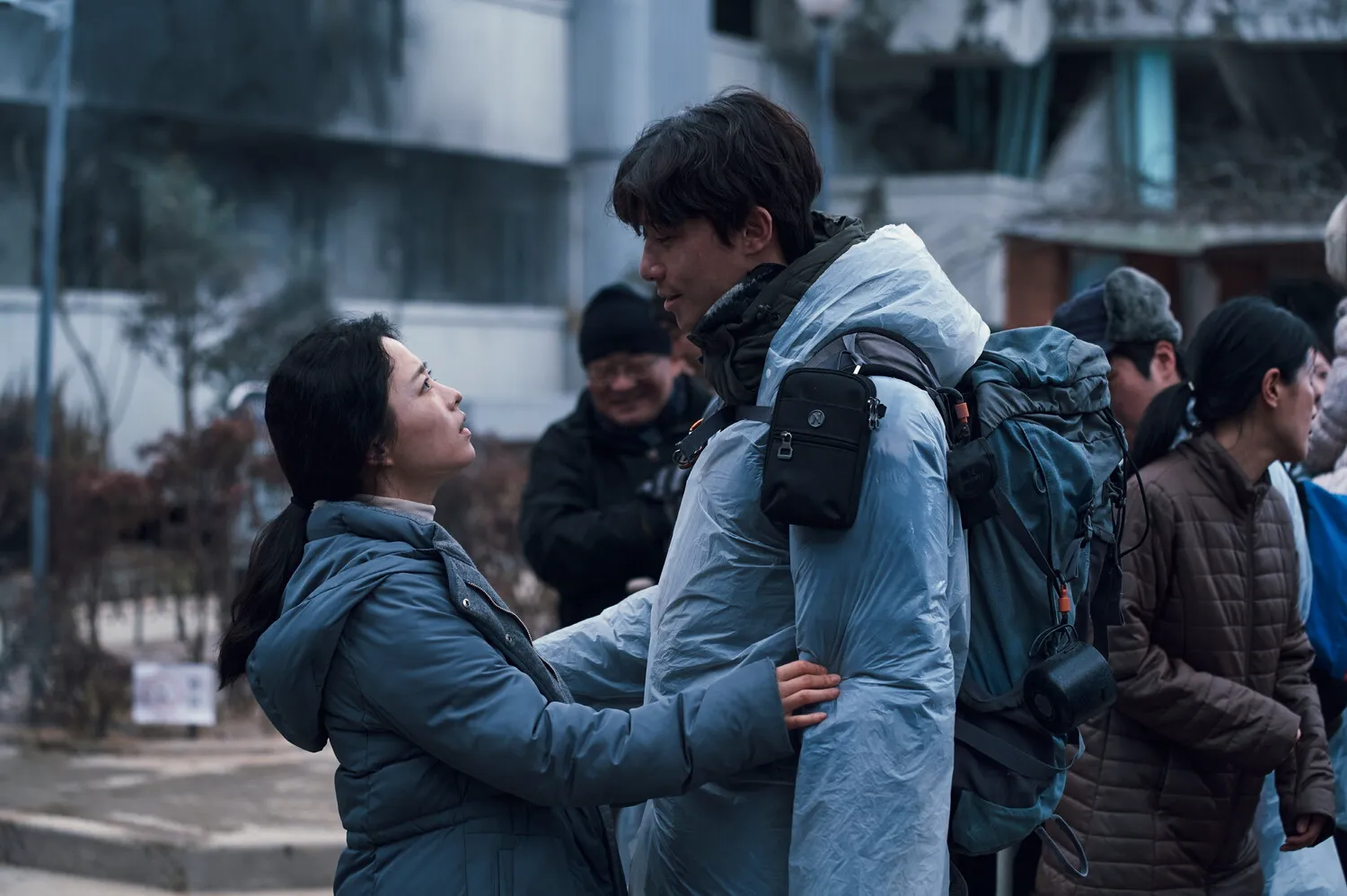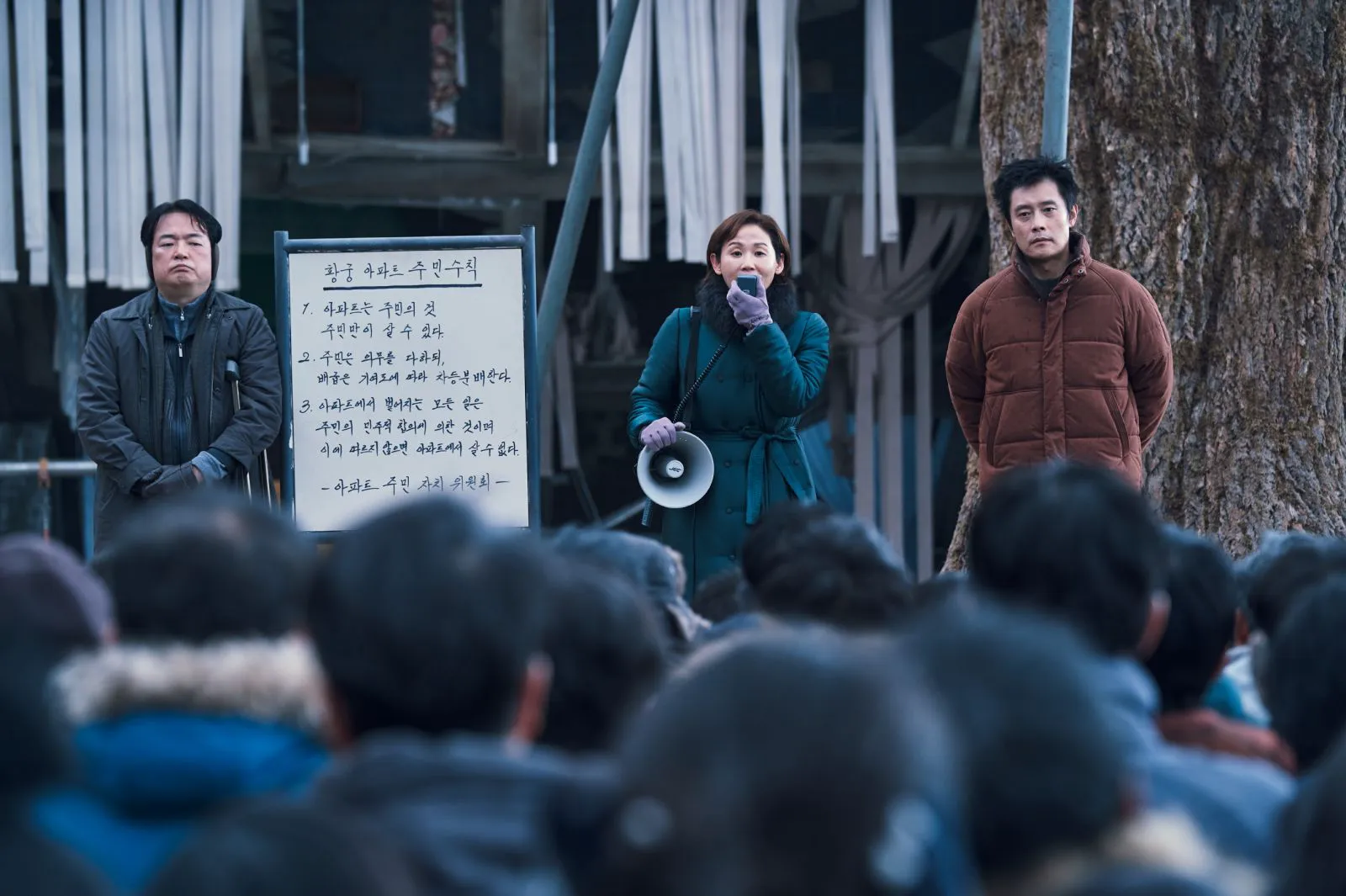The earth’s crust is torn apart for miles, buildings crumble, and corpses litter the landscape—an earthquake has struck Seoul. Or perhaps all of South Korea. Or even the entire world. The viewer, like the characters, doesn’t see the full extent of the disaster; the director confines the narrative to the sole surviving apartment complex in sight. The world shrinks to the confines of this high-rise, which immediately becomes a microcosm for exploring various societal structures.

Park Seo-joon as Min in “Concrete Utopia”
Dystopian Apartment Complex: A Familiar Theme
The dystopian trope of isolated buildings where residents devolve into either slaves or elites has been explored extensively, most notably in Ben Wheatley’s “High-Rise.” Last year saw the release of Guillaume Nicloux’s “The Mist” in Russia. Expanding beyond just residential structures, Bong Joon-ho’s “Snowpiercer” and Galder Gaztelu-Urrutia’s “The Platform” fit this mold as well. However, “Concrete Utopia” by Um Tae-hwa distinguishes itself through its straightforward concept and ambiguous message.

Kim Seo-hyung in “Concrete Utopia”
A Swift Descent into Social Structure
“Concrete Utopia” wastes no time on exposition; the earthquake strikes within seconds of the film’s start. Consequently, the establishment of a socialist system within the apartment complex begins almost immediately, justifying the film’s title. The protagonists, newlyweds Min (Park Seo-joon) and Myung-hwa (Park Bo-young), are unequivocally good-hearted, more compassionate than their neighbors. They don’t endure the full brunt of the ordeal but witness its stages as they wash over the residents.
The other inhabitants are harder to sympathize with, though not impossible. Yeong-tak (Lee Byung-hun) stands out: a man who finds himself in the building by chance and is chosen as its leader. A natural charismatic, he confidently guides his charges toward prosperity under the circumstances, often overstepping boundaries with dissenters and gradually establishing a dictatorship. Yet, instead of portraying a bright future after this tyranny, director Um Tae-hwa reveals an even grimmer picture of its collapse, leaving both tyrant and victim equally lifeless, far from any imagined happiness.

Park Bo-young as Myung-hwa in “Concrete Utopia”
The Absence of Morality
Any system is inherently flawed, yet life outside a system is impossible. If the audience is led to any conclusions, they are bleak, almost devoid of morality. Any chance of survival lies in individual action, independent of external factors. The protagonists survive because they ultimately refuse to take sides and choose themselves.
“Concrete Utopia” was not only a top-ten box office hit in South Korea last year but was also submitted for the “Best International Feature Film” Oscar. However, it didn’t make the shortlist, perhaps predictably. Despite its subtext, Um Tae-hwa’s film remains a b-movie—a genre-driven survival quest in ruins. The sequel seems to follow suit: while Russian cinemas are preparing to release “Utopia,” Netflix has already launched “Badland Hunters,” a straightforward action film set in the same universe, outside the surviving building. And who knows, perhaps a third film will expand the franchise by early 2025, as the webcomic that inspired “Concrete Utopia” is still ongoing.